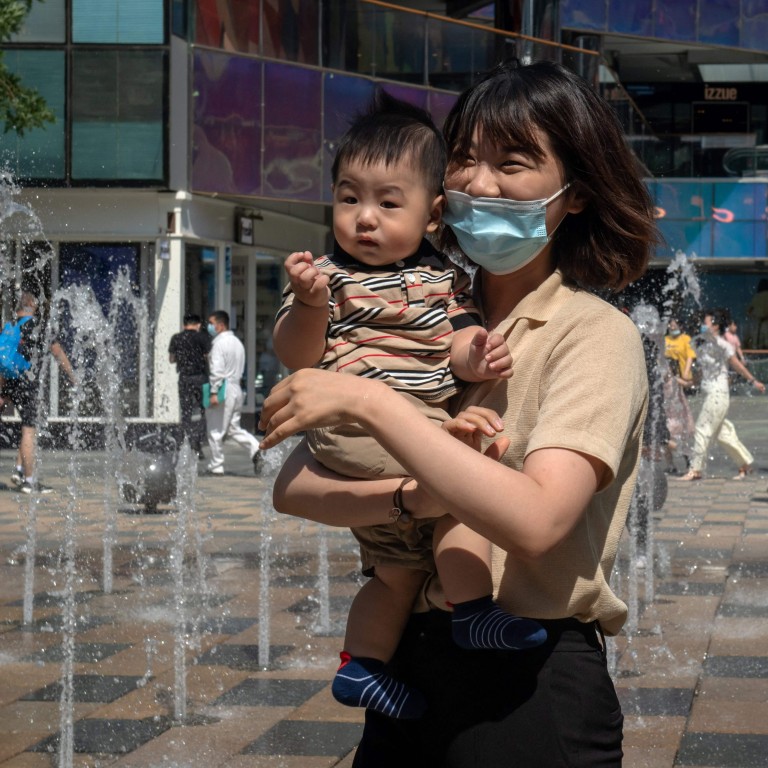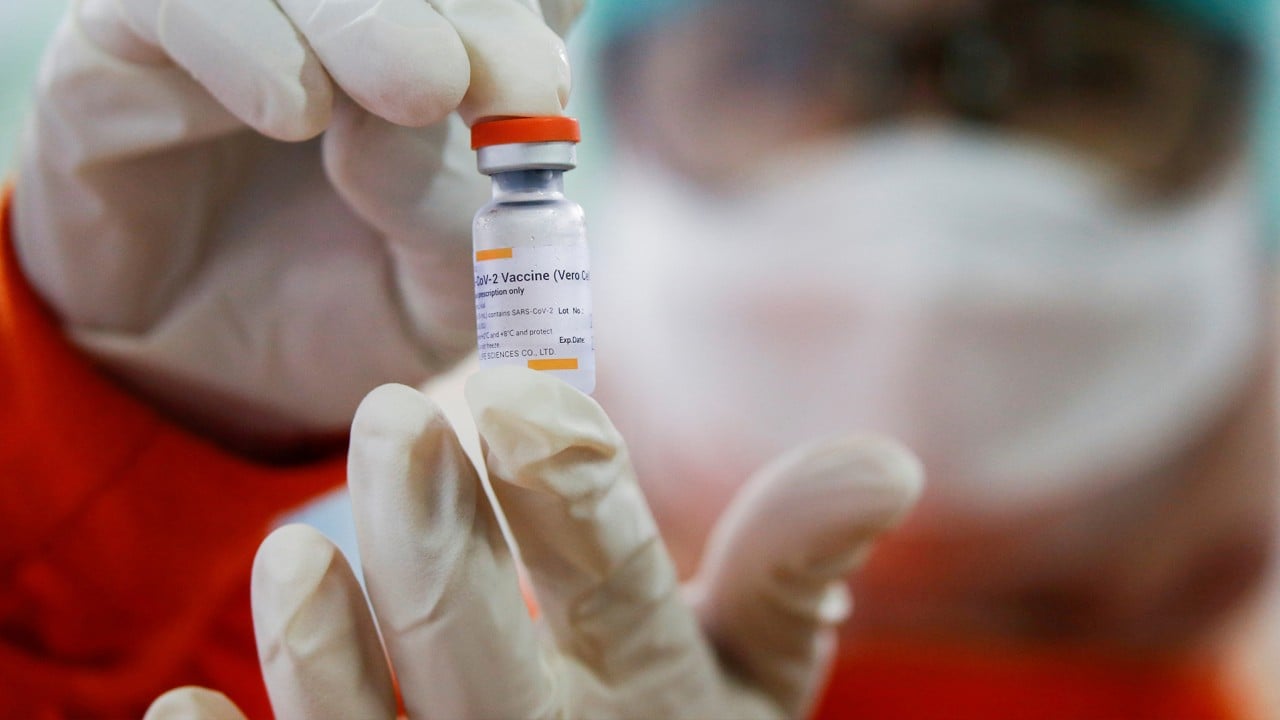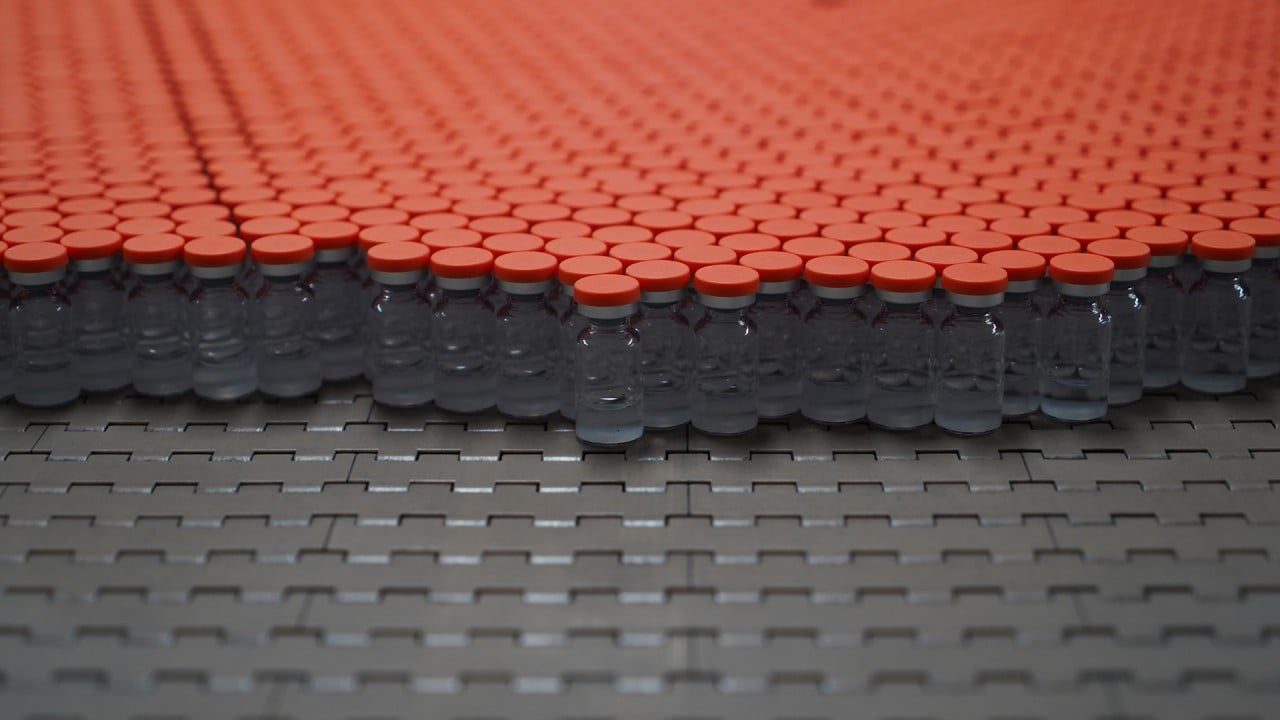
China approves Covid-19 vaccine for children as young as three
- Other countries have authorised vaccinations for under-18s but nowhere else has given the green light for their use on such a young age group
- The vaccine maker Sinovac tells state broadcaster CCTV that it has been carrying out trials on minors and found no differences with adults
On Friday, Yin Weidong, the chief executive officer of the Beijing-based vaccine maker Sinovac Biotech, told state broadcaster CCTV: “Sinovac has carried out a clinical study on the minor population, which started at the beginning of this year, with the first and second phase clinical trials completed.
“Hundreds of cases showed that after vaccination, the group [three to 17 years old] is as safe as the 18-year-old adult group.”
Although other countries have approved the use of vaccines for minors, nowhere else has extended it to children so young.
China pushes to expand vaccine development with 20 candidates in trials
There are relatively few studies on the efficacy or potential side effects of the vaccines on children and they are regarded as a low priority compared with high-risk groups such as the elderly or frontline medical workers.
Younger people are thought generally to suffer from milder symptoms if infected with Covid-19.
It is not clear when Chinese children are likely to start receiving jabs and the country is currently trying to meet a target of vaccinating 560 million people by the end of the month, with a particular focus on high-risk groups.
“The National Health Commission will organise relevant experts to promote the use of vaccines in lower age groups in an orderly manner based on the needs of the current epidemic in China and the composition of the population,” Yin said.

01:30
WHO approves Sinovac Biotech’s coronavirus vaccine for emergency use
Local health authorities said the variant had nearly twice the viral load of previous strains and has affected all age groups. The youngest person infected was only one year old.
Yin said people in China and other parts of the world were increasingly willing to get vaccinated, a trend driven in part by growing evidence that the vaccines are safe.
But the increased demand also put pressure on supplies. China’s goal of inoculating 560 million people by the end of the month will need more than a billion doses.
More than a million Covid-19 vaccines from Japan arrive in Taiwan
Expanding vaccination to children will inevitably put more pressure on vaccine producers. Yin said the designed capacity of Sinovac’s production plant was two billion doses a year but it was likely to exceed that in meeting demand from the domestic and international markets.
“We have now provided more than 600 million doses of vaccines to the world, which means that we have met the quality standards for providing vaccines to the WHO and more countries. We are prepared for further increases in production capacity,” he said.

02:35
Inside a plant in China producing the WHO-approved Sinovac Covid-19 vaccine
Sinovac’s product is one of more than 20 vaccines developed in China using a variety of techniques. These range from vaccines such as Sinovac’s made using the old school technique of using a dead, or inactivated, virus to trigger an immune response to those that use viral proteins or mRNA technology.
An easy-to-use vaccine that can be sprayed in the mouth has recently applied for emergency use, according to state media reports.

